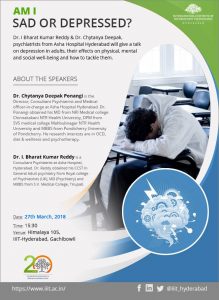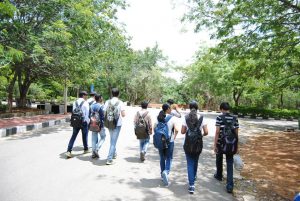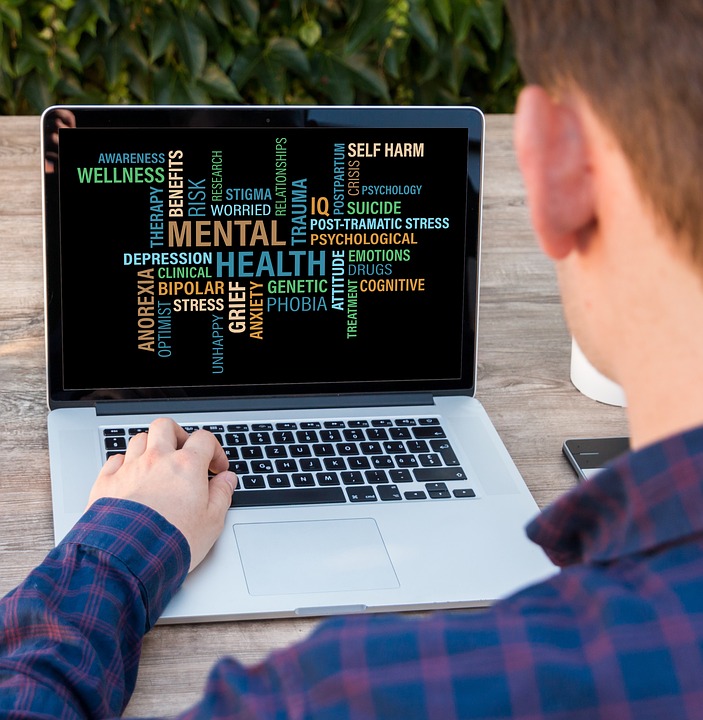According to data obtained from WHO, “more than 1 in 4 people will develop a mental health issue at some point in their lives”. The Global Burden of Disease Study 2010 (GBD 2010), estimated that a substantial proportion of the world’s disease burden came from mental, neurological and substance use disorders. Other studies have shown that there is a clear correlation between diseases such as HIV, tuberculosis, and other non-communicable ones such as cancer, diabetes, and mental illness. Simplistically put, this means that if you have chronic medical conditions, mental disorders will hasten the progression of such conditions.
Society may have come a long way from viewing the mentally ill as “weak” or “broken” and historically treating the “insane” in asylums physically located at a distance from city centres, but the truth remains that there is still social stigma associated with mental illness. It took a celebrity like Deepika Padukone in 2016 to publicly acknowledge that she was battling depression for (Indian) society to come to terms with the fact that it’s ok to talk about it and more importantly to seek help.
Awareness is Key
There’s a fine line between feeling meh, feeling under-the-weather, and feeling depressed. And understanding the subtle nuances between them can make a world of difference. As part of its Student Life Committee (SLC), IIIT-Hyderabad has organized a series of talks and seminars on mental health, substance abuse, and even awareness on the LGBTQ community. Senior Research Scientist from the Cognitive Science Lab, Dr Priyanka Srivastava, who is spearheading the mental health initiative says, “We felt the need to conduct awareness sessions, seminars and workshops about mental well being”. There are currently 3 counsellors on campus. “We are actively working on creating the right perception of counselling as well as awareness about approaching a counsellor when required because that awareness is currently not present, ” admits Priyanka. There is going to be aggressive campaigning in the form of posters showcasing availability of the counsellors, their timings, and so on.

Peer Patience
The big step, according to Dr Srivastava is enlisting student volunteers who will act like the first line of support. More often than not, students who are in need of intervention typically are unaware of their own need, or even those who show some degree of awareness tend to procrastinate seeking help. “We are trying to have in place a student mental first aid body. Counsellors and psychiatrists will train them so that they will be more sensitive to and can identify their peers who show irregular patterns of behaviour.” The idea is to have peers approaching such students to guide them towards the counsellors or faculty on campus. Once this student body is in place and ready to be trained, the plan is to invite doctors from Asha Hospital who will in turn guide and help in the final programme.

Academic Pressure
When academically gifted students from diverse backgrounds and cities come together to study in a premier institute like IIITH, there’s bound to be healthy competition coupled with a visible drop in performance, for a few. Priyanka says that there are talks to cull out data based on CGPA ratings found in the second semester, to zero in on such students who have shown a perceptible drop in scores as one of the primers. Seeking out and counselling such students, if required, will serve as a pre-emptive measure in the path to mental well-being. There is an ongoing dialogue between faculty, the counsellors, and the psychiatrists. “The counselling committee has narrowed down some causative factors that cause pressure and shared concerns especially about the burden of heavy coursework to the Academic Committee”, says Priyanka.
Substance Abuse
There is a strong correlation between substance abuse and mental illness. To quote the (US) National Bureau of Economic Research, “people who have been diagnosed with a mental illness at some point in life consume 69 percent of the nation’s alcohol and 84 percent of the nation’s cocaine.” The institute follows a zero tolerance policy towards substance abuse. A committee on substance abuse is currently being formulated to put in place guidelines for students as well as faculty. The idea is to create awareness among students without sounding too preachy. Qualified doctors from Asha Hospital have been invited for a session where they will talk about the long term and short term effects of substance abuse, how it is easy for students to fall prey to it and explain the downward spiral from there with long-lasting effects on behaviour and subsequent careers.
Institute’s Pride
Evidence suggests that in a bid to keep their sexuality under wraps, the LGBTQ (Lesbian, Gay, Bisexual, Transgender, Queer) community is at an increased risk of psychological distress, which again may lead to substance abuse. Radhika Mamidi, Assistant Professor in the Language Technologies Research Centre (LTRC), who also chairs the Student Life Committee (SLC) says that last year when the SLC organized the first-ever panel discussion on LGBTQ issues, it was a bold move by the institute. But equally challenging to reach out to students, faculty and staff to let them know that the institute was open to engaging with them. In fact last year, internationally-acclaimed transgender advocate and co-founder of the non-profit ‘Your True Gender’, Jessica Lynn was invited for an educational session on gender identity which was received very well by a packed audience. This year too, the LGBTQ student community concerns will be addressed by appropriate discussions, according to Prof Srivastava.

Social and Cultural Activities
Dr Mamidi says that the objective of the SLC is to ensure that students are empowered by developing organisational skills and having a culturally and socially active life. All the non-academic activities of students come under its purview – from cultural events (Felicity, freshers night, inter-house competitions), to sports to various clubs (music, dance, debate, photography, art etc) to NSS-led activities (blood donation, tree plantation), to outbound trips, to celebration of festivals, national days and so on. Prof Mamidi also facilitates Faculty Student Interactive Sessions. In fact the awareness drive on mental health and substance abuse is a direct offshoot of the interactions held with students. Prof Srivastava affirms that the myriad of activities available for students on campus serve as avenues for stress-busting. “It’s up to the students to utilize them and make a choice”.
The Right Move
At the macro-level, it is said that improvements in poverty, hunger, health, gender equality, and education, are all part of the United Nations’ 17 Sustainable Development Goals. And research has shown that advancement in mental health care facilities, especially treatment of the more common depression has led to improvement in these goals. By giving priority to mental well-being of students, IIIT-Hyderabad has recognized that mental health is essential to physical health.



Next post